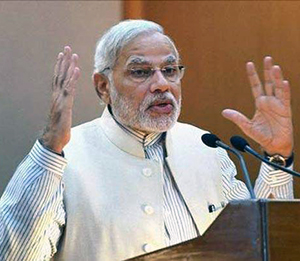New Delhi, Jan 9: The Public Accounts Committee (PAC) of Parliament can call Prime Minister Narendra Modi on the issue of demonetisation if it is not satisfied with the answers given by top finance ministry officials and the RBI Governor Urjit Patel, to whom a detailed questionnaire has been sent.

A PAC meeting on this issue has been called on January 20th, in which the RBI Governor Urjit Patel, Finance Secretary Ashok Lavasa and Economic Affairs Secretary Shaktikanta Das will be present.
"We have not yet received answers for the questions we have sent to them. They will reply few days before the January 20th meeting. Their replies will be discussed in detail," PAC Chairman and senior Congress leader K V Thomas told PTI.
Asked if the PAC would call the Prime Minister if replies were not satisfactory, he said: "The committee has all right to call anybody involved in the matter. But that will depend on the outcome of the January 20th meeting. We can call PM on demonetisation issue if members unanimously decide."
In a meeting with the PM after demonetisation announcement made on November 8, Thomas said, "I had met him and he said that the situation will be normal after 50 days by December-end. But it does not looks like."
So, PAC decided to call the top officials involved in the decision making process this month, he said, adding that the demonetisation has impacted the country's economy.
"The PM is misleading the country to satisfy his ego. He is trying to justify his wrong decisions. He has done in a callous manner by introducing Rs 2,000 notes," he said.
"In a country where there is a call drop problem and telecom facilities are not smooth, how can PM expect e-transactions would take place on mobiles. Do we have sufficient infrastructure?" he questioned.
Asked what kind of questionnaire been sent to the RBI chief and top finance ministry officials, Thomas said that the PAC has raised questions on all aspects of demonetisation.
Among key questions sought are, who were involved in the decision-making?, how much money has come back into banks after demonetisation?, is there a law that can restrict people's access their money?, how much money has been pumped back into the system?, if black money issue has been addressed and the impact on the economy and poor?.
The PAC, which scrutinises the reports of the Comptroller and Auditor General (CAG), takes suo motu note of the important matters.







Comments
Add new comment